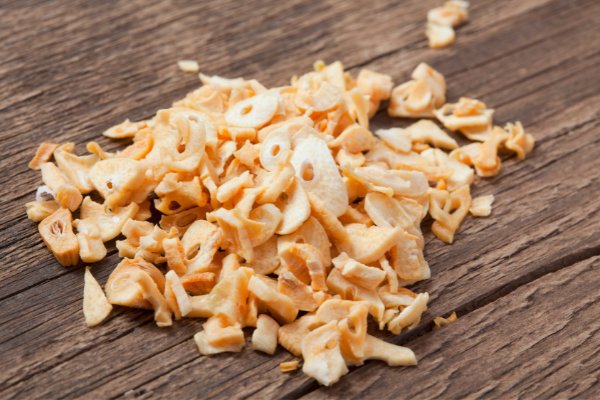By April and May we expect more demand for dry garlic
By April and May we expect more demand for dry garlic
More volumes, solid quality and higher transportation costs. That pretty much sums up the current garlic season in Egypt. Although the conflict in Ukraine definitely tightens the export to both Russia and Ukraine, overall the war should not have a huge impact on the season.

The harvest for Egyptian garlic has already started and according to Mohamed Shaaban, general manager of Garlico Egypt, producers will have more volumes of garlic this year, than they did last season: “We have a great harvest for garlic this year, better than last year. We’re seeing more quantities and a nice even 50/50 distribution of small and big calibers. Since March, we have good demand for green wet garlic from Europe, specifically from Poland, Greece, France, Italy and Spain, as well as some Arabian countries, like Jordan. By April and May we expect more demand for dry garlic which will see huge demand from Brazil, Taiwan, Canada and USA.”
Although Garlico definitely sees the effects of the war in Ukraine, the company does not expect the conflict to have a major impact on the garlic season, Shaaban explains. “Despite Covid and the war between Russia and Ukraine, we don’t have problems of transportation or vessels sailing. However, as is true in the entire world, the costs for transportation have increased significantly. When it comes to the war, we do see less quantities of produce being shipped, or not shipped at all to both Russia and Ukraine. However, in the grand scheme of things, these are two markets, when we send the Egyptian garlic to more than 60 markets around Europe, Asia, North America, South America and a few markets in Africa.”
Once the garlic is fully dried, the Egyptian garlic season will be in full swing: “Over the next few weeks, demand for Egyptian garlic should see more demand. By April the garlic will be fully dry, with cheaper prices than last year, combined with nice quality thanks to the good weather in Egypt this year. Harvesting for Egyptian garlic started in March and the produce will be 100% dry and ready for export after April 20th.” Shaaban concludes.
- We have practically run out of broadleaf herbicides for garlic cultivation
- Egypt: Record onion exports in the last six months
- Our fruit drying concept offers added value to growers and traders
- Larger US lemon crop this season
- Peruvian pineapple still has great potential to increase its exports
- Pagoda held a Newton apple tasting in Guangzhou
 Telephone :+86-15562397099
Telephone :+86-15562397099










